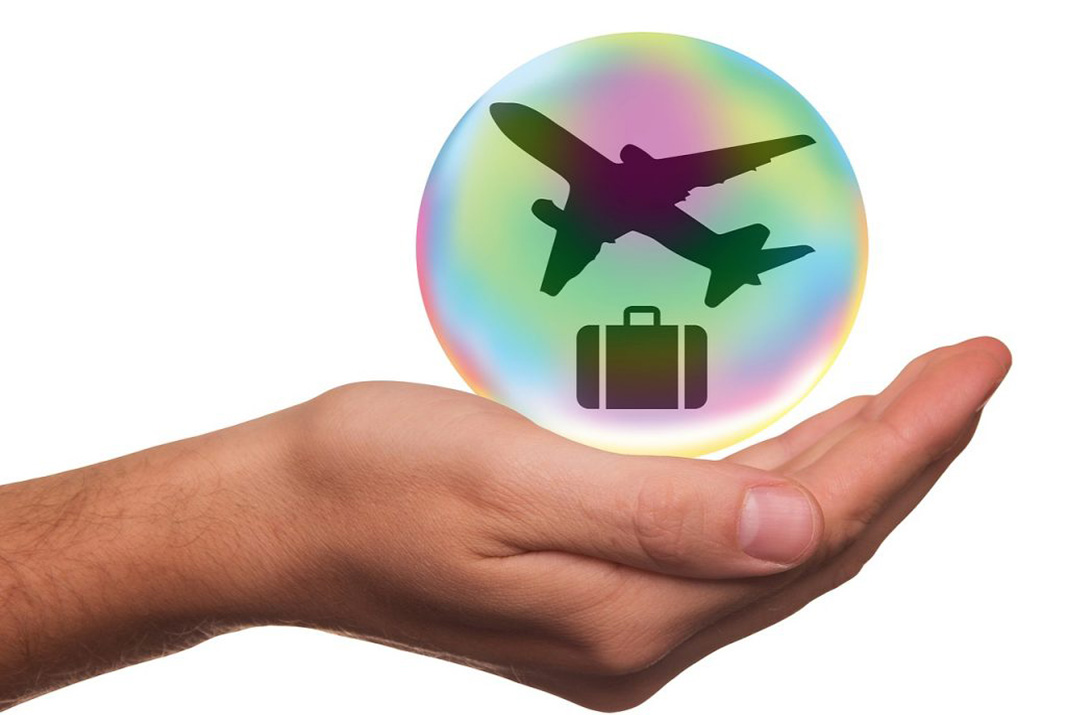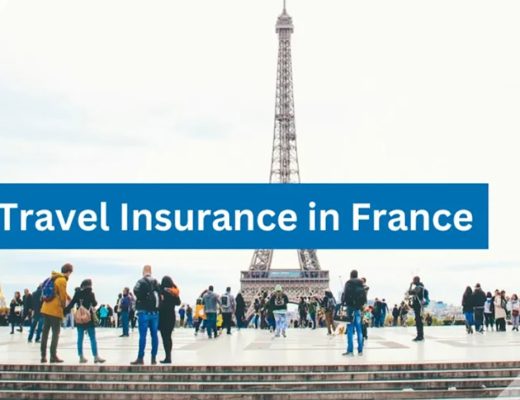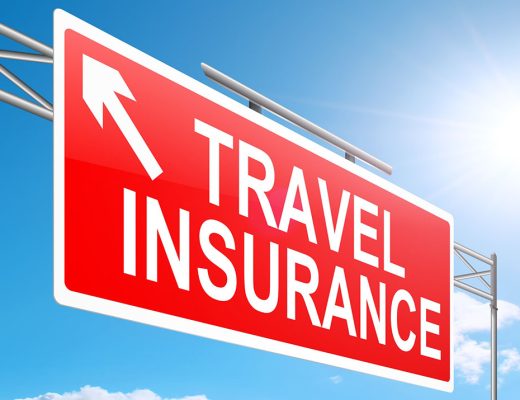The first time I arrived in Le Havre, I felt a mixture of excitement, curiosity, and underlying anxiety. The coastal wind hit me sharply as I stepped off the train, tugging at my coat and tousling my hair. In front of me stretched the city’s modernist skyline, its gray concrete facades reflecting the winter sky in shades of silver and slate. I had meticulously planned my trip: train tickets from Paris booked through SNCF Connect, my accommodation reserved on Booking.com, and even a waterfront dinner secured via TheFork (LaFourchette). Everything appeared seamless, yet I couldn’t shake the nagging thought that unforeseen events could derail my plans entirely.
At that moment, I realized that travel insurance was far more than an optional add-on or bureaucratic formality — it was a vital companion. In France, and particularly in Le Havre, there are so many variables that can turn a dream trip into a stressful ordeal. Minor incidents like a sudden illness or lost luggage, or more serious emergencies such as accidents along the rugged coastline or transport delays, can quickly complicate travel. Experiencing these challenges firsthand showed me that insurance is not just paperwork — it is a reassurance that allows one to engage fully with the city without a constant undercurrent of worry.
Health Emergencies on the Normandy Coast
One December morning, I wandered along Le Havre’s promenade, enjoying the rhythmic crashing of the waves against the pebbled shore. The air was sharp and bracing, and even with gloves on, my fingers quickly grew numb. I stepped onto a wet stone near the pier and slipped slightly, scraping my knee against the concrete edge. It was a minor injury, but it brought into sharp focus how vulnerable a traveler can be in a foreign city.
France boasts excellent healthcare facilities, yet even minor medical needs can escalate quickly without coverage. Visiting a local pharmacy to purchase antiseptic, bandages, and ointments was straightforward, but arranging follow-up care or a hospital visit could have become expensive and stressful without insurance. The travel insurance I had purchased through AXA Assistance provided coverage for emergency medical treatment, ambulance services, and even prescriptions. That reassurance allowed me to continue exploring Le Havre with confidence, knowing that even unexpected mishaps would not completely disrupt my journey.
There is also the mental component of safety. Knowing that insurance exists to cover unforeseen health issues significantly reduces anxiety. Walking along the port, I could focus on observing the ships in the distance, the subtle shifts of light over the water, and the architectural precision of Perret’s modernist buildings, rather than worrying about potential medical emergencies.
Theft and Lost Belongings
Le Havre, vibrant and generally safe, is not immune to petty theft. On one trip, a fellow traveler on the tram from the station to Saint Joseph’s Church had their wallet stolen. Watching them navigate the bureaucratic nightmare of cancelling credit cards and replacing identification made me appreciate the role of travel insurance even more. Without coverage, recovering from theft can become an expensive, time-consuming ordeal, especially in a foreign country with unfamiliar procedures.
Travel insurance provides both financial protection and peace of mind for these situations. My policy through Allianz Travel reimbursed a colleague for a stolen smartphone, replacement travel documents, and even some personal items. Having this safety net meant that we could continue our exploration of the city without the constant stress that accompanies theft or lost luggage.
Le Havre’s urban environment, with its busy train stations, crowded trams, and bustling shopping areas, requires attentiveness. Even when exercising caution, unexpected incidents can occur, and insurance ensures that the disruption is manageable rather than catastrophic.

Flight Cancellations and Transport Delays
Getting to Le Havre often involves multiple connections — international flights into Paris, trains to the Normandy coast, and local buses. On one December trip, my flight from London to Paris Charles de Gaulle (CDG) was delayed by thick fog. Without insurance, I might have been stranded, missing my connecting train to Le Havre and facing an unplanned overnight stay. Fortunately, my travel insurance covered missed connections, reimbursement for the delayed flight, and accommodation near the airport, making an otherwise stressful situation manageable.
Platforms such as Skyscanner and Google Flights are excellent tools for planning and comparing flights, yet they offer no protection against delays, cancellations, or lost luggage. Travel insurance steps in to fill this gap, ensuring that minor disruptions do not escalate into major setbacks. Having coverage for transport interruptions has allowed me to plan trips with confidence, knowing that even unexpected delays cannot ruin my itinerary.
The benefits of insurance are evident in more routine travel as well. When boarding regional trains from Paris to Le Havre, particularly during the winter months when weather can disrupt schedules, I can proceed without fear. I remember one icy morning when a local train was canceled due to snow on the tracks. Insurance allowed me to rebook and cover the extra cost without panic, and I still made it to Le Havre in time to visit the André Malraux Museum (MuMa) and enjoy the muted winter sunlight along the harbor.
Adventure and Activities Coverage
Beyond health emergencies and transport mishaps, Le Havre offers experiences where unexpected accidents can occur. Walking along the rocky coastline or exploring cliffs near Étretat, I often find myself in situations where a misstep could lead to injury. While the city itself is relatively flat, excursions into surrounding areas involve uneven terrain. Travel insurance that includes coverage for minor accidents and emergency evacuation has provided a sense of security that allows me to take in the full range of coastal landscapes without hesitation.
Even indoor activities benefit. I have attended workshops at MuMa, wandered through art galleries, and tried out bicycle rentals along the promenade, all knowing that my insurance policy offers support in case of an accident. This safety net transforms cautious hesitation into genuine exploration.
Choosing the Right Insurance Policy
Over time, I’ve learned that selecting an insurance policy requires careful consideration. Policies vary in coverage details, exclusions, and cost. For trips to Le Havre, I now focus on three providers that consistently deliver both value and reliability:
- AXA Assistance Travel Insurance – This plan offers comprehensive medical coverage, trip cancellation protection, and assistance for lost belongings. It provides options for both single trips and multiple trips throughout the year, making it versatile for travelers who visit France often.
- Allianz Travel Insurance Classic Plan – Known for responsive customer service, this policy covers medical emergencies, baggage delays, and travel interruptions. Claims are straightforward to submit online, reducing stress when incidents occur.
- World Nomads Standard Plan – While slightly more expensive, this plan includes coverage for adventurous activities such as hiking and cycling, which is ideal for excursions along the cliffs and beaches of Normandy.
Booking insurance early directly through the provider’s website often results in discounts. I also compare rates using aggregators such as InsureMyTrip, ensuring that I get the best value for my itinerary.
Integrating Insurance Into Travel Planning
Insurance is not an afterthought; it is integral to every stage of planning. When I book a stay at Hôtel Vent d’Ouest via Booking.com, I check that my coverage includes trip interruption and cancellation. When purchasing tickets to MuMa on GetYourGuide, I confirm that the policy protects pre-paid activities. Even dining experiences booked through TheFork (LaFourchette) benefit indirectly. On one trip, a sudden December storm made walking to a waterfront restaurant unsafe. Insurance allowed me to cancel and reschedule without financial loss, turning potential disappointment into flexibility.
This approach extends to all aspects of travel in France. Flights, accommodations, museum tickets, and restaurant reservations all carry a degree of risk. Insurance ensures that minor setbacks do not accumulate into major obstacles. I have even used coverage to replace items purchased for excursions, such as a stolen raincoat or a lost camera lens, ensuring that the trip continues uninterrupted.

Peace of Mind in Every Situation
Walking through Le Havre’s city center, I often pause to admire the UNESCO-listed Perret buildings, their geometric lines glowing softly in winter sunlight. Insurance allows me to focus on these moments — the subtle variations in concrete, the reflections in the harbor waters, and the muted rustle of the port — without an underlying tension about potential mishaps.
A scraped knee, a lost wallet, or a delayed train no longer overshadows my experiences. Travel insurance has become a quiet companion on every journey, offering reassurance and allowing me to embrace the city fully. It transforms the anxiety of uncertainty into freedom, letting me walk along the promenade, visit museums, enjoy seafood dinners, and watch the changing light over the Channel with a sense of security.
Even the smallest conveniences matter. Knowing that coverage exists for minor emergencies makes navigating Le Havre in December — with its brisk winds, potential rainfall, and bustling train stations — far more manageable. It gives me confidence to wander freely along the waterfront, explore hidden alleyways, and discover cafés off the beaten path without hesitation.
A Travel Philosophy Rooted in Security
Through repeated visits to Le Havre, I have learned that travel insurance is not simply a safety net but a facilitator of authentic experience. It allows me to engage fully with the city’s architecture, its dynamic port, and its coastline without the constant calculation of risk. Each winter, I arrive prepared with AXA Assistance, Allianz Travel, or World Nomads, and each trip confirms the value of that choice.
Insurance transforms travel from cautious planning into immersive exploration. It turns potential obstacles into minor inconveniences, ensuring that every moment — whether standing on the beach at sunrise, enjoying the galleries of MuMa, or dining on fresh seafood along the harbor — is experienced fully, without fear or hesitation.


